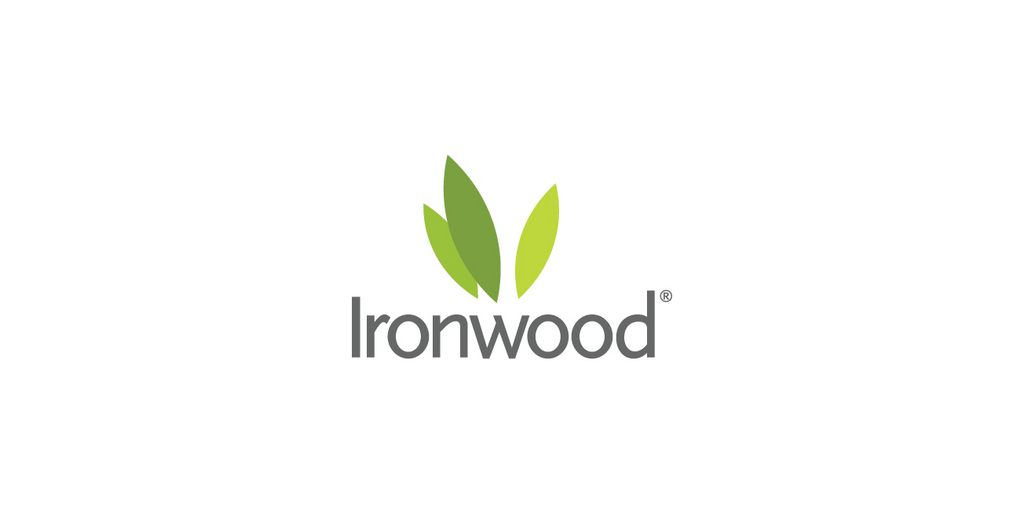Ironwood Pharmaceuticals Maintains FY 2025 Financial Guidance and Announces FY 2026 Financial Guidance
Ironwood Pharmaceuticals Maintains FY 2025 Financial Guidance and Announces FY 2026 Financial Guidance
– Expects full-year 2026 LINZESS® U.S. net sales of $1.125 to $1.175 billion; total revenues of $450 to $475 million and adjusted EBITDA of greater than $300 million –
– Ended Q4 2025 with greater than $200 million in cash and cash equivalents –
BOSTON–(BUSINESS WIRE)–Ironwood Pharmaceuticals, Inc. (Nasdaq: IRWD), a biotechnology company developing and commercializing life-changing therapies for people living with gastrointestinal (GI) and rare diseases, today announced financial guidance for full year 2026.


“Throughout 2025, we made significant progress in maximizing LINZESS while delivering sustained profits and cash flows in an effort to strengthen our financial position and maintain compliance with debt covenants over the coming quarters,” said Tom McCourt, chief executive officer of Ironwood. “As we close 2025, we are on track to achieve the low-end of our full-year LINZESS U.S. net sales and total revenue guidance ranges and ended the fourth quarter with greater than $200 million in cash and cash equivalents. Also, in the fourth quarter we met with the FDA to align on a confirmatory Phase 3 trial design of apraglutide for the treatment of short bowel syndrome with intestinal failure (SBS-IF). Based on this meeting, we are on track to initiate a confirmatory trial in the first half of 2026 and expect to provide details on the trial design in our fourth quarter and full-year 2025 update later this quarter.”
“In 2026, we remain focused on our core priorities of maximizing LINZESS, advancing apraglutide and delivering sustained profits and cash flows. We believe our full-year 2026 guidance demonstrates the significant progress we’ve made to deliver on these priorities to help drive value for shareholders moving forward. Effective January 1, 2026, the LINZESS list price has been lowered in response to evolving health care dynamics and to support ongoing patient access. In turn, we expect higher net sales in 2026 for LINZESS year-over-year, specifically driven by the elimination of the inflationary component of statutory required rebates across channels, including Medicaid, due to the decrease in list price. In conjunction with the anticipated increased net sales, we expect our continued focus on disciplined expense management to result in greater than $300 million in adjusted EBITDA in 2026. Finally, we continue to progress our previously announced strategic alternatives review in an effort to maximize shareholder value and look forward to providing further updates as appropriate,” added Tom McCourt.
Financial Guidance
Ironwood is maintaining its previous FY 2025 financial guidance and is providing FY 2026 financial guidance.
|
|
FY 2025 Guidance
(November 2025)
|
FY 2026 Guidance
(January 2026)
|
|
LINZESS U.S. net sales
|
$860 – $890 million
|
$1.125 – $1.175 billion
Driven by improved net price and low-single digit percentage demand growth
|
|
Total revenue1
|
$290 – $310 million
|
$450 – $475 million
|
|
Adjusted EBITDA2
|
>$135 million
|
>$300 million
|
1 Ironwood’s U.S. collaborative arrangements revenue includes reimbursement from AbbVie for a portion of Ironwood’s commercial expenses related to sales of LINZESS in the U.S. The FY2025 total revenue guidance accounts for the impact of the reduction to Ironwood’s commercial expenses and corresponding reimbursement from AbbVie due to Ironwood’s strategic reorganization announced in January 2025.
2 Adjusted EBITDA is calculated by subtracting restructuring expenses, net interest expense, income taxes, depreciation and amortization and stock-based compensation, from GAAP net income. The exclusion of stock-based compensation from Adjusted EBITDA represents an update to our definition of Adjusted EBITDA, effective in the first quarter of 2025. For purposes of this guidance, we have assumed that Ironwood will not incur material expenses related to business development activities in 2025 and 2026. Ironwood does not provide guidance on GAAP net income or a reconciliation of expected adjusted EBITDA to expected GAAP net income because, without unreasonable efforts, it is unable to predict with reasonable certainty the non-GAAP adjustments used to calculate adjusted EBITDA. These adjustments are uncertain, depend on various factors and could have a material impact on GAAP net income for the guidance period. Management believes this non-GAAP information is useful for investors, taken in conjunction with Ironwood’s GAAP financial statements, because it provides greater transparency and period-over-period comparability with respect to Ironwood’s operating performance. These measures are also used by management to assess the performance of the business. Investors should consider these non-GAAP measures only as a supplement to, not as a substitute for or as superior to, measures of financial performance prepared in accordance with GAAP. In addition, these non-GAAP financial measures are unlikely to be comparable with non-GAAP information provided by other companies.
About Ironwood Pharmaceuticals
Ironwood Pharmaceuticals (Nasdaq: IRWD) is a biotechnology company developing and commercializing life-changing therapies for people living with gastrointestinal (GI) and rare diseases. Ironwood is advancing apraglutide, a next-generation, long-acting synthetic GLP-2 analog being developed for short bowel syndrome patients who are dependent on parenteral support. In addition, Ironwood has been a pioneer in the development of LINZESS® (linaclotide), the U.S. branded prescription market leader for adults with irritable bowel syndrome with constipation (IBS-C) or chronic idiopathic constipation (CIC). Building upon our history of innovation, we keep patients at the heart of our R&D and commercialization efforts to reduce the burden of diseases and address significant unmet needs.
Founded in 1998, Ironwood Pharmaceuticals is headquartered in Boston, Massachusetts, with a site in Basel, Switzerland.
We routinely post information that may be important to investors on our website at www.ironwoodpharma.com. In addition, follow us on X and on LinkedIn.
About LINZESS (Linaclotide)
LINZESS® is the #1 prescribed brand in the U.S. for the treatment of patients with irritable bowel syndrome with constipation (“IBS-C”) or chronic idiopathic constipation (“CIC”), based on IQVIA data.
LINZESS is a once-daily capsule that helps relieve the abdominal pain and constipation, associated with IBS-C in adults and pediatric patients 7 years of age and older. LINZESS has also been shown to relieve constipation, infrequent stools, hard stools, straining, and incomplete evacuation associated with CIC in adult patients. LINZESS relieves constipation in children and adolescents aged 6 to 17 years with functional constipation.
LINZESS is not a laxative; it is the first medicine approved by the FDA in a class called GC-C agonists. LINZESS contains a peptide called linaclotide that activates the GC-C receptor in the intestine. Activation of GC-C is thought to result in increased intestinal fluid secretion and accelerated transit and a decrease in the activity of pain-sensing nerves in the intestine. The clinical relevance of the effect on pain fibers, which is based on nonclinical studies, has not been established.
In the United States, Ironwood and AbbVie co-develop and co-commercialize LINZESS for the treatment of adults with IBS-C or CIC. In Europe, AbbVie markets linaclotide under the brand name CONSTELLA® for the treatment of adults with moderate to severe IBS-C. In Japan, Ironwood’s partner, Astellas, markets linaclotide under the brand name LINZESS for the treatment of adults with IBS-C or CIC. Ironwood also has partnered with AstraZeneca for development and commercialization of LINZESS in China, and with AbbVie for development and commercialization of linaclotide in all other territories worldwide.
LINZESS Important Safety Information
INDICATIONS AND USAGE
LINZESS® (linaclotide) is indicated for the treatment of irritable bowel syndrome with constipation (IBS-C) in adults and pediatric patients 7 years of age and older and for the treatment of chronic idiopathic constipation (CIC) in adults and for the treatment of functional constipation (FC) in children and adolescents 6 to 17 years of age.
IMPORTANT SAFETY INFORMATION
-
WARNING: RISK OF SERIOUS DEHYDRATION IN PEDIATRIC PATIENTS LESS THAN 2 YEARS OF AGE
-
LINZESS is contraindicated in patients less than 2 years of age. In nonclinical studies in neonatal mice, administration of a single, clinically relevant adult oral dose of linaclotide caused deaths due to dehydration.
|
Contraindications
-
LINZESS is contraindicated in patients less than 2 years of age due to the risk of serious dehydration.
-
LINZESS is contraindicated in patients with known or suspected mechanical gastrointestinal obstruction.
Warnings and Precautions
-
LINZESS is contraindicated in patients less than 2 years of age. In neonatal mice, linaclotide increased fluid secretion as a consequence of age-dependent elevated guanylate cyclase (GC-C) agonism, which was associated with increased mortality within the first 24 hours due to dehydration. There was no age dependent trend in GC-C intestinal expression in a clinical study of children 2 to less than 18 years of age; however, there are insufficient data available on GC-C intestinal expression in children less than 2 years of age to assess the risk of developing diarrhea and its potentially serious consequences in these patients.
Diarrhea
-
In adults, diarrhea was the most common adverse reaction in LINZESS-treated patients in the pooled IBS-C and CIC double-blind placebo-controlled trials. The incidence of diarrhea was similar in the IBS-C and CIC populations. Severe diarrhea was reported in 2% of 145 mcg and 290 mcg LINZESS-treated patients and in <1% of 72 mcg LINZESS-treated CIC patients.
-
In pediatric patients, diarrhea was also the most common adverse reaction of LINZESS-treated patients in IBS-C and FC clinical trials. In two double-blind trials, diarrhea was reported in 4% of pediatric patients 6 to 17 years of age with FC treated with LINZESS 72 mcg once daily, and 7% and 8% of pediatric patients 7 to 17 years of age with IBS-C treated with LINZESS 145 mcg and 290 mcg once daily, respectively. In clinical trials, severe diarrhea was reported in one pediatric patient with FC treated with LINZESS 72 mcg once daily and in one pediatric patient with IBS-C treated with LINZESS at a dosage higher than the recommended 145 mcg once daily dosage for IBS-C.
Common Adverse Reactions (incidence ≥2% and greater than placebo)
-
In IBS-C or CIC adult patients: diarrhea, abdominal pain, flatulence, and abdominal distension.
-
Most common adverse reaction reported in pediatric patients with FC or IBS-C is diarrhea.
Please see full Prescribing Information including Boxed Warning:
https://www.rxabbvie.com/pdf/linzess_pi.pdf
LINZESS® and CONSTELLA® are registered trademarks of Ironwood Pharmaceuticals, Inc. Any other trademarks referred to in this press release are the property of their respective owners. All rights reserved.
Forward-Looking Statements
This press release contains forward-looking statements within the meaning of the Private Securities Litigation Reform Act of 1995. Investors are cautioned not to place undue reliance on these forward-looking statements, including statements about Ironwood’s ability to execute on its mission; Ironwood’s strategy, business, financial position and operations; Ironwood’s ability to drive growth and profitability; the commercial potential of LINZESS; Ironwood’s financial performance and results, and guidance and expectations related thereto; LINZESS prescription demand growth, LINZESS U.S. net sales growth, total revenue and adjusted EBITDA in 2025 and 2026; our belief that the 2026 financial guidance demonstrates a significant progress made to help drive value for shareholders; our plan to continue to progress apraglutide and initiate a confirmatory Phase 3 trial and our expectation and timing to provide additional details on the trial design and to initiate such trial; and the status of the strategic alternatives review and timing to provide an update. These forward-looking statements speak only as of the date of this press release, and Ironwood undertakes no obligation to update these forward-looking statements. Each forward-looking statement is subject to risks and uncertainties that could cause actual results to differ materially from those expressed or implied in such statements. Applicable risks and uncertainties include those related to the effectiveness of development and commercialization efforts by us and our partners; preclinical and clinical development, manufacturing and formulation development of linaclotide, apraglutide, and our other product candidates; the risk of uncertainty relating to pricing and reimbursement policies in the U.S., which, if not favorable for our products, could hinder or prevent our products’ commercial success; the risk that clinical programs and studies, including for linaclotide pediatric programs and apraglutide, may not progress or develop as anticipated, including that studies are delayed or discontinued for any reason, such as safety, tolerability, enrollment, manufacturing, economic or other reasons; the risk that findings from our completed nonclinical studies and clinical trials may not be replicated in later trials and earlier-stage clinical trials may not be predictive of the results we may obtain in later-stage clinical trials or of the likelihood of regulatory approval; the risk that apraglutide will not be approved by the FDA or other regulatory agencies; the risk of competition or that new products may emerge that provide different or better alternatives for treatment of the conditions that our products are approved to treat; the risk that we are unable to execute on our strategy to in-license externally developed products or product candidates; the risk that we are unable to successfully partner with other companies to develop and commercialize products or product candidates; the risk that healthcare reform and other governmental and private payor initiatives may have an adverse effect upon or prevent our products’ or product candidates’ commercial success; the efficacy, safety and tolerability of linaclotide and our product candidates; the risk that the commercial and therapeutic opportunities for LINZESS, apraglutide or our other product candidates are not as we expect; decisions by regulatory and judicial authorities; the risk we may never get additional patent protection for linaclotide, apraglutide and other product candidates, that patents for linaclotide, apraglutide or other products may not provide adequate protection from competition, or that we are not able to successfully protect such patents; the risk that we are unable to manage our expenses or cash use, or are unable to commercialize our products as expected; the risk that the development of any of our linaclotide pediatric programs and/or apraglutide is not successful or that any of our product candidates does not receive regulatory approval or is not successfully commercialized; outcomes in legal proceedings to protect or enforce the patents relating to our products and product candidates, including abbreviated new drug application litigation; the risk that financial and operating results may differ from our projections; developments in the intellectual property landscape; challenges from and rights of competitors or potential competitors; the risk that our planned investments do not have the anticipated effect on our company revenues; developments in accounting guidance or practice; Ironwood’s or AbbVie’s accounting practices, including reporting and settlement practices as between Ironwood and AbbVie; the risk that our indebtedness could adversely affect our financial condition or restrict our future operations; the risk that our activities to explore potential strategic alternatives may not result in any transaction or maximize shareholder value; and the risks listed under the heading “Risk Factors” and elsewhere in our Annual Report on Form 10-K for the year ended December 31, 2024, and in our subsequent Securities and Exchange Commission filings.
Contacts
Company:
Greg Martini
Chief Financial Officer
gmartini@ironwoodpharma.com
Investors:
Precision AQ (formerly Stern Investor Relations)
Stephanie Ascher
Stephanie.Ascher@precisionaq.com




















